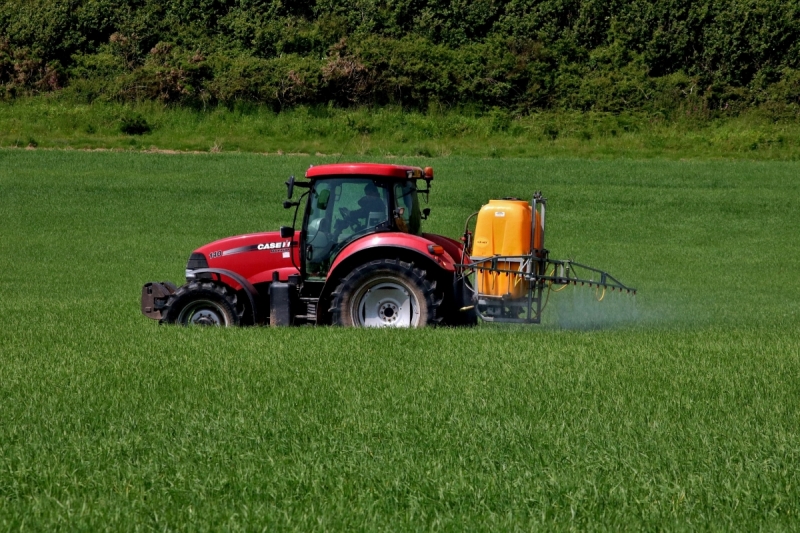A fungicide that is used a lot in potato cultivation in Denmark is entering groundwater, a new study shows. The Danish authorities will now ban it, after almost 20 years of use. "The case shows that the Danish authorisation system is not good enough to protect groundwater”, says Maria Reumert Gjerding, president of the Danish Society for Nature Conservation.
Cyazofamid metabolites are leaching into groundwater. This is the finding of a new report by GEUS and Aarhus University. The situation is so bad that the Danish EPA is planning to ban products containing the substance, widely used in potato production in Denmark.
"These are widespread findings and therefore our starting point is that it should be banned," says Maria Sommer Holtze, head of Office at the Danish EPA.
The study shows that cyazofamid converts to the degradation product DMS and DMSA, which enter groundwater in excessive concentrations. DMS is a significant challenge for Danish waterworks in large parts of the country. It was thought to originate only from past use of pesticides used in fruit and berry production, and from outdoor paints and wood preservatives in cities. "It's quite new that we have evidence that this pesticide turns into DMS and goes into groundwater," says Maria Sommer Holtze.
Cyazofamid has been used in potato production in Denmark since 2004. It takes many years for pesticides to reach the groundwater used by water companies. So the Danish EPA did not expect potato production to be a major source of the DMS problems of recent years. Now they say “it is clear that in areas with potato production there will be a risk that we find DMS in groundwater in the future.".
The discovery was made on the government test plots after GEUS had previously informed the Danish EPA that there was a risk of cyazofamid being converted to DMS. In addition to DMS, cyazofamid is also converted into DMSA. The tests show that DMS is quite widespread and that it is measured at a maximum concentration of 0.44 micrograms per litre, while DMSA is measured up to 0.78 micrograms per litre.
Both are significantly above the requirement for drinking water and groundwater of a maximum of 0.1 micrograms per litre. The authorities state that DMS in these quantities is not harmful to health.
DMSA not screened before
It is important to realise that this is the first time the substance DMSA has been documented in Denmark. DMSA has therefore not been part of the large mass screenings of groundwater that the Danish EPA has carried out in recent years. But with the new knowledge, there is no way around investigating this substance too.
"It is clear that we now have to pay extra attention to DMSA. We need to clarify whether it is something that water companies need to keep an eye on," says Maria Sommer Holtze.
The news is of great concern to Danish potato growers, who rely heavily on the substance to combat mould. Chairman of Danske Kartofler Carl Heiselberg tells Altinget that a ban would have serious consequences. "This is probably the most serious thing I have experienced in the 30 years I have been dealing with potatoes. It's really bad. It's a gut punch," says Carl Heiselberg.
Approval system not safe
The Danish Society for Nature Conservation is pleased that the Danish EPA is preparing to ban the substance. President Maria Reumert Gjerding does not think that should stop there. According to her, the case shows that the Danish authorisation system is not good enough to protect groundwater.
"We have to recognise that the approval system is not safe and that we don't know enough about the pesticides that are approved today. It is simply not good enough," says Maria Reumert Gjerding. She believes the new case is a "huge argument" for groundwater parks, which are about banning pesticides on some 200,000 hectares in Denmark.
"We should not allow spraying on top of the areas in Denmark where drinking water is formed today," says Maria Reumert Gjerding. “There is a problem with this substance and we discover it 20 years too late. And it's not the first time that approved pesticides - which have been used for a number of years - have actually been found to pose a threat,"
Source: Altinget. Original Article in Danish
